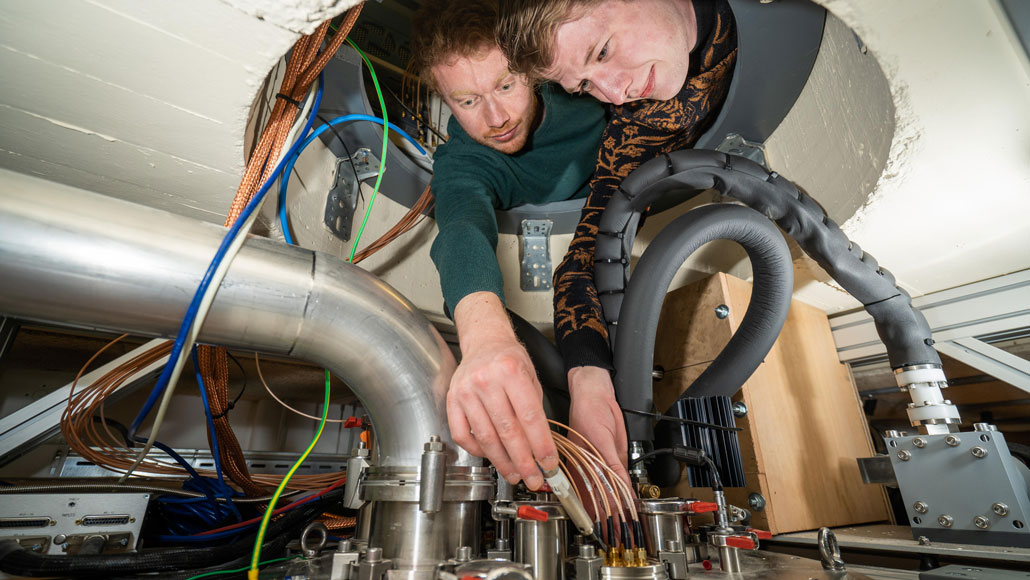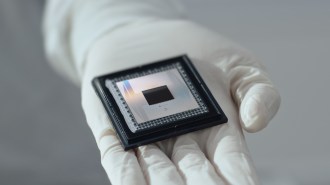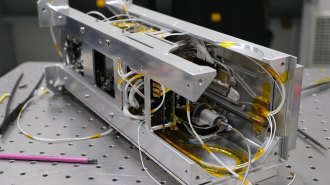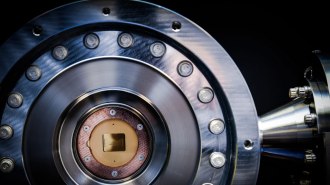New quantum computers can operate at higher temperatures
Silicon chips raise hopes for scaling up devices to millions of quantum bits

Quantum computers are warming up. Researchers from QuTech work on a silicon-based quantum computer that operates at higher temperatures than most other types.
Wouterslitsfotografie for QuTech.







